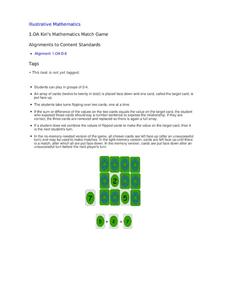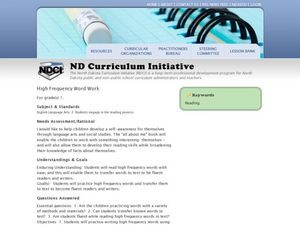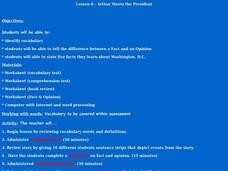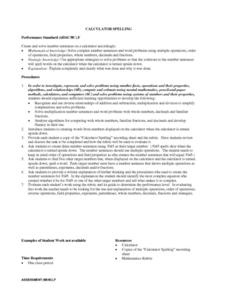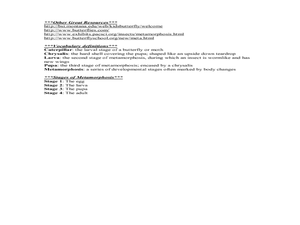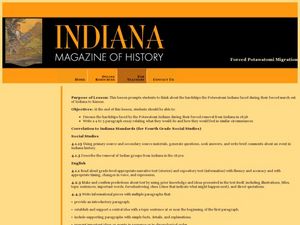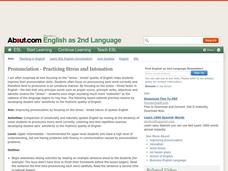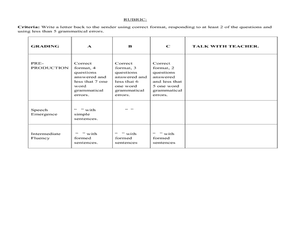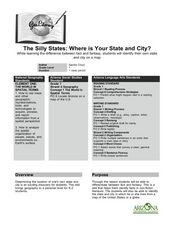Curated OER
Only the Facts
Practice the strategy of summarizing to gain meaning and knowledge from an informational text. Young readers highlight supporting details and main ideas, and then they use this to summarize two articles: "The Great Quake" and "What is an...
Curated OER
Fast Fact-Finding
Ever wonder why the sky changes color so often? Readers examine an informational excerpt from John Farndon's How the Earth Works. They underline key points as they read and then answer five response questions. Prompts review main points,...
Illustrative Mathematics
Kiri's Mathematics Match Game
Learning math is so much more fun when it involves playing games. Following the rules of the classic game Memory, young mathematicians flip over two cards at a time as they look for numbers whose sum or difference is equal to the value...
Laura Candler
Fishbowl Multiplication
Transition young mathematicians from using repeated addition to multiplication with this fun, hands-on activity. Using manipulatives and the included game board, students work in pairs modeling repeated addition problems before...
Curated OER
Charlotte's Web
Fourth graders focus on fluency by reading the book Charlotte's Web. In this reading strategies instructional activity, 4th graders partner read, do guided reading, and independent reading to increase fluency. Students use Venn Diagrams,...
Curated OER
High Frequency Word Work
First graders make an "All About Me" book. In this high fluency words lesson students use a computer program to create a book about themselves. Students write their own text.
Scholastic
Study Jams! Relate Addition & Subtraction
Understanding the inverse relationship between addition and subtraction is essential for developing fluency in young mathematicians. Zoe and RJ explain how three numbers can form fact families that make two addition and two subtraction...
Curriculum Corner
Back to School Math and Literacy Centers
From filling in the missing number to filling in the missing letter; to writing fluency sentences to skip counting and matching, a complete set of back to school math a literacy centers will not disappoint. Use these activities during...
Curated OER
Thumbs Up For Expert Readers!
Young scholars use the cross check strategy to increase reading comprehension in this lesson. They listen as the teacher reads "Where the Wild Things Are." The teacher purposely reads some words wrong so that the story does not make...
West Contra Costa Unified School District
Division (No Remainders)
Help young mathematicians build a solid understanding of division with this base ten block activity. With the help of these popular math manipulatives, children model different math problems in order to reinforce the connection between...
Curated OER
Making Math More Fun
Trick young mathematicians into practicing their basic arithmetic with this extensive collection of fun math games. Whether you're teaching addition, subtraction, multiplication, division, place value, or even fractions, there is a game...
Curated OER
Arthur Meets the President
Learners read, Arthur Meets the President, and review the story using sentence strips and complete a book review activity with a partner. In this reading skills lesson, students work on fact and opinion and master fluency with...
Curated OER
Calculator Spelling
Sixth graders practice creating and solving number sentences on a calculator. They interact with number facts, their properties, algorithms and estimation. Each student recognizes inverse relationships of addition, subtraction,...
Curated OER
Context Clues, Plot Structure, Conflict, and Personal Narrative Essay
What are the elements of a personal narrative? Get your class talking by reading "The Necklace" and "A Dangerous Game." The lesson focuses primarily on defining certain vocabulary terms (like context clues, plot, conflict, climax, etc.)...
Curated OER
Persona Interests, Likes, and Dislikes
Students practice listening to and discussing their personal interests and opinions. In this communication lesson, students listen as the teacher talks about his/her personal interest. They work with a partner to verbally share their own...
Curated OER
What's the Point
Students practice the strategy of summarization to be able to understand and comprehend the text. They study how to get rid of unnecessary or repeated information and find the most important items or events and then write a statement...
Curated OER
Life Cycle of the Monarch Butterfly
Third graders access prior knowledge of the monarch butterfly and discuss what they would like to know. In this Monarch Butterfly lesson,students read Monarch Butterfly and discuss the life cycle of the butterfly. Students gather...
Curated OER
Forced Potawatomi Migration
Fourth graders write about the forced Potawatomi migration. In this primary source lesson students are read journal entries from an emigrating party of Potawatomi Indians. Students reflect on the items the Indians might have taken with...
Curated OER
Nonfiction Genre Mini-Unit: Persuasive Writing
Should primary graders have their own computers? Should animals be kept in captivity? Young writers learn how to develop and support a claim in this short unit on persuasive writing.
Curated OER
Miles Of Smiles
Students investigate basic mathematical properties to solve multiplication and division problems. They solve word problems that are part of the lesson plan. Students are required to give written or oral justification for how they solve...
Curated OER
Charlie and the Chocolate Factory
Fourth graders research and write an author report on Roald Dahl, including books written by him, birthplace, family life, and other information on his writing. Students read aloud chapters in the book. Students create a newspaper...
Curated OER
Pronunciation: Practicing Stress and Intonation
Young scholars practice their pronunciation of their words and stressing certain words when speaking. They use sentences given to them by their teacher to practice.
Curated OER
Write Right Back
Third graders explore communications by utilizing technology. In this e-mail writing instructional activity, 3rd graders identify important elements to include when writing an e-mail based on whether it's to a friend, colleague or...
Curated OER
The Silly States: Where Is Your State and City?
First graders read The Scrambled States of America and discuss whether it is real or fantasy as compared to the United States. In this geography lesson, 1st graders identify their city or state on a map and work in groups to color the...




